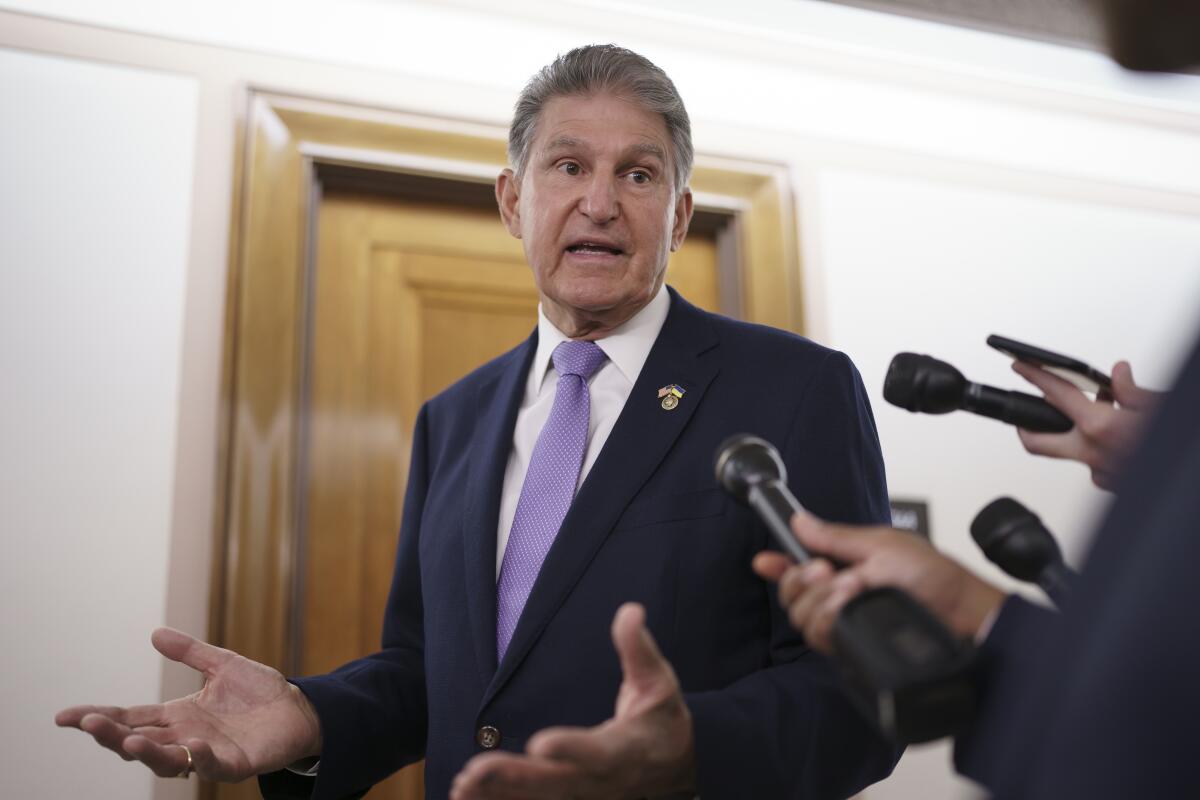Sen. Manchin isolating after testing positive for coronavirus

CHARLESTON, W.Va. — Sen. Joe Manchin has tested positive for the coronavirus and is experiencing mild COVID-19 symptoms, the West Virginia lawmaker tweeted Monday. The 74-year-old Democrat said he’s fully vaccinated and boosted.
“I will isolate and follow CDC guidelines as I continue to work remotely to serve West Virginians,” he said.
With 82-year-old Sen. Patrick Leahy (D-Vt.) also missing votes recently after two hip surgeries, Manchin’s illness underscores the fragility of Democrats’ control of the Senate.
Democrats are trying to push several legislative priorities through the 50-50 chamber this campaign season, including hoped-for votes next week on a top-tier measure curbing pharmaceutical prices and on extending federal subsidies for health insurance.
But with a summer recess scheduled to begin soon and the weeks until November’s elections dwindling, any Democratic absences due to new cases of COVID-19 or other reasons would complicate those plans.
Unlike the House of Representatives, members of the Senate are not able to vote remotely by proxy, practically tipping the scale toward Republicans in floor votes if not all members can show up.
Leahy aides have said he is available to vote if needed. Democrats control the chamber due to Vice President Kamala Harris’ tiebreaking vote
Lawmakers are expected to take a final vote on a bill to boost semiconductor production, which has bipartisan support. The bill making its way through the Senate is a top priority of the Biden administration.
The legislation would add about $79 billion to the deficit over 10 years, mostly as a result of new grants and tax breaks that would subsidize the cost that computer chip manufacturers incur when building or expanding chip plants in the United States.
More to Read
Sign up for Essential California
The most important California stories and recommendations in your inbox every morning.
You may occasionally receive promotional content from the Los Angeles Times.










